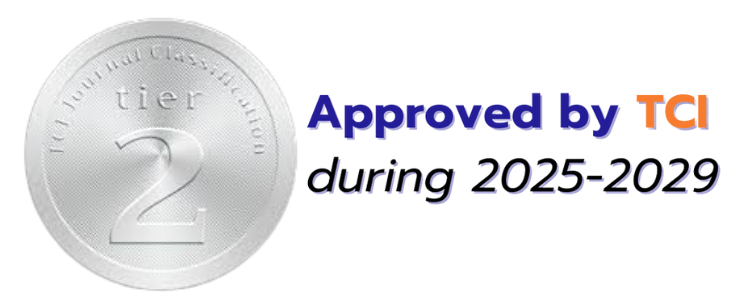Guidelines for Providing Experiences through an Online Learning System to Promote Early Childhood Development, Kasetsart University Laboratory School, Kamphaeng Saen Campus, Educational Research and Development Center
Keywords:
childhood development, Early Childhood Education, online learning systemAbstract
This research aims to 1) study the development of early childhood children that has been organized through the online learning system of the Kasetsart University Laboratory School, Kamphaeng Saen Campus, Educational Research and Development Center, 2) study the guidelines for organizing online learning experiences for early childhood children of the Kasetsart University Laboratory School, Kamphaeng Saen Campus, Educational Research and Development Center, and 3) create a format for organizing online learning experiences for early childhood that promotes early childhood development of the Kasetsart University Laboratory School, Kamphaeng Saen Campus, Educational Research and Development Center. The research tool is a plan for organizing online learning experiences for early childhood children, the development assessment in 4 aspects according to the 12 standards characteristics of the Ministry of Education. The sample group was Year 1 Kindergarten students at the Kasetsart University Laboratory School, Kamphaeng Saen Campus, Educational Research and Development Center, 50 people, 2nd semester, academic year 2022. The statistics used for analysis are the mean and the standard deviation.
The research results found that 1) Early childhood development in physical, emotional, social, and intellectual aspects meets the 12 standards of desirable characteristics when organizing an online learning experience for early childhood children. The development increases each week. 2) The guidelines for the organization of the online learning experiences for early childhood children from the analysis using the PDCA quality cycle, a model for organizing experiences through the online learning system for early childhood that promotes early childhood development is the KA Model.
Downloads
References
Education, Office of the Basic Education Commission. (2017). Course Guide Early childhood education 2017 (for children aged 3-5 years). Ladprao Printing House.
Ekakul, T. (2000). Research methods in behavioral science and social science. Ubon Ratchathani Rajabhat Institute.
Laohajaratsaeng, T. (2007). Designing e-learning. Bangkok.
Mengthong, W. (2021). Effects of organizing physical activities using natural media on 4 aspects of early childhood development. Chiang Mai Rajabhat University Demonstration School.
Pantoon, N. (2011). The Results Movment Activitives and Applie Hemit Excercise (Rusie Dutton ) Rhythms for The Physical Development of Preschool [Master of Education, Srinakharinwirot University].
Phuwichit, C. (2021). Effective online learning management in the digital age http://www.nidtep.go.th/2017/publish/doc/20210827.pdf
Santanon, J. (2010). The Development of Social Relations of Young Children’s Drawing
with Collage Picture Activities in Group [Master of EducationSrinakharinwirot University ].
Sirawatanasakul, C. (2020). Opinions on online learning and teaching through the internet (E-learning) system of undergraduate students in the Faculty of Business Administration in Bangkok [Master of Social Sciences, Srinakharinwirot University].
Srijareonvijit, C. (2021). 10 things you should know about COVID-19 disease in children. https://www.sikarin.com/doctor- articles/10
Downloads
Published
Issue
Section
License
Copyright (c) 2024 Journal of Education and Human Development Sciences

This work is licensed under a Creative Commons Attribution-NonCommercial-NoDerivatives 4.0 International License.







